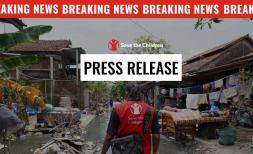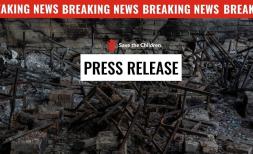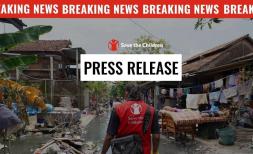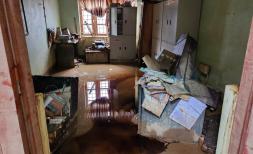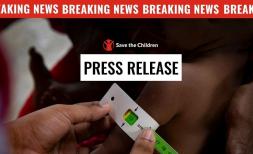Aid arrives in disaster-struck Tonga as food, water running out
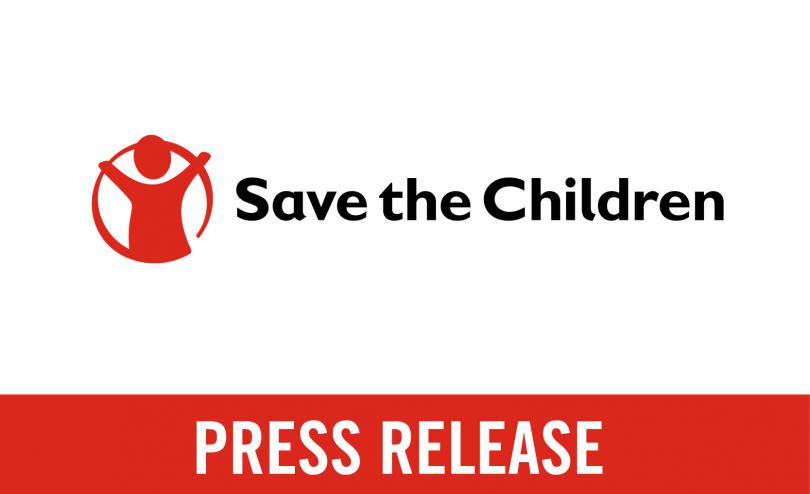
SUVA, Fiji, 21 January 2022 – The race is on to get life-saving supplies to children and families in Tonga as water and food supplies dwindle following the volcano and tsunami disaster which struck nearly a week ago.
Save the Children will join the response by establishing temporary learning and child friendly spaces to support children impacted by the trauma of recent events, as well as provide school bags, hygiene kits and cash assistance to affected families.
Over 80,000 people, including at least 28,000 children, are estimated to have been affected across the country by the eruption and subsequent tsunami. The country, which has a population of about 100,000, is particularly vulnerable to climate threats such as tsunamis, because of rising sea levels.
Although the full scale of needs is still being assessed, damage to school infrastructure and learning resources is anticipated, as well as the use of schools as evacuation centers, which could lead to a delay to the start of the 2022 school year initially planned for January 31.
Lost income due to the disaster will likely impact the ability of families to provide for their children`s education and health. There is a risk that school attendance will be affected, as children and youth are required to work, or families are unable to afford to send them due to the economic impact of the disaster.
To mitigate the COVID risk, Save the Children will utilise existing staff in-country and leverage significant regional expertise in education and emergency cash assistance to support children and families in Tonga.
Shairana Ali, CEO Save the Children Fiji, said:
“We are incredibly concerned about the mental health of children in Tonga. This sort of event will obviously lead to a lot of distress and anxiety, and there is absolutely a need for psychosocial support and counselling for children.
“We still don’t have a lot of information about how families have fared on those low-lying islands, so we are very concerned for the safety and the wellbeing of children.
“Assessments are obviously ongoing to understand the needs of children and families in Tonga. We must ensure that any response is mindful of the COVID risk, while ensuring children get the support they desperately need.”
“Utilising existing program staff in Tonga, Save the Children will work to ensure children are safe and supported in this time of disaster through our Child Friendly Spaces. We will also establish temporary learning spaces and deliver distance learning to limit disruption to education as much as possible.”
“Save the Children will support families impacted by the disaster with cash assistance. Not only does cash assistance ensure families can purchase the things they need, it supports the recovery of the local economy in the longer term.”
The volcano erupted about 65km (40 miles) north of the capital Nuku'alofa, and triggered a tsunami which flooded parts of the archipelago. The eruption emitted a plume of ash, steam and gas, rising approximately 20km above the volcano, and blanketing parts of the country with ash and smoke.
Power has been restored to 90% of the country and some international phone calls are now available. So far three deaths have been reported and hundreds of buildings destroyed but the exact scale of the damage remains unknown due to the lack of access to some islands.
In Tonga, Save the Children supports the Ministry of Education to deliver a $1 million (AUD) distance learning program, utilising technology to reach outlying islands and remote populations. With the support of the Global Partnership for Education, the Tonga Accelerated Resilience Program (TARP) develops education systems that are much better prepared for emergencies.
Throughout the Pacific, Save the Children delivers Cash and Voucher Assistance programs in emergencies to support families in a fast, effective and dignified way. Cash assistance ensure families can purchase the things they need, when they need it, but it also supports local economic activity.
ENDS
